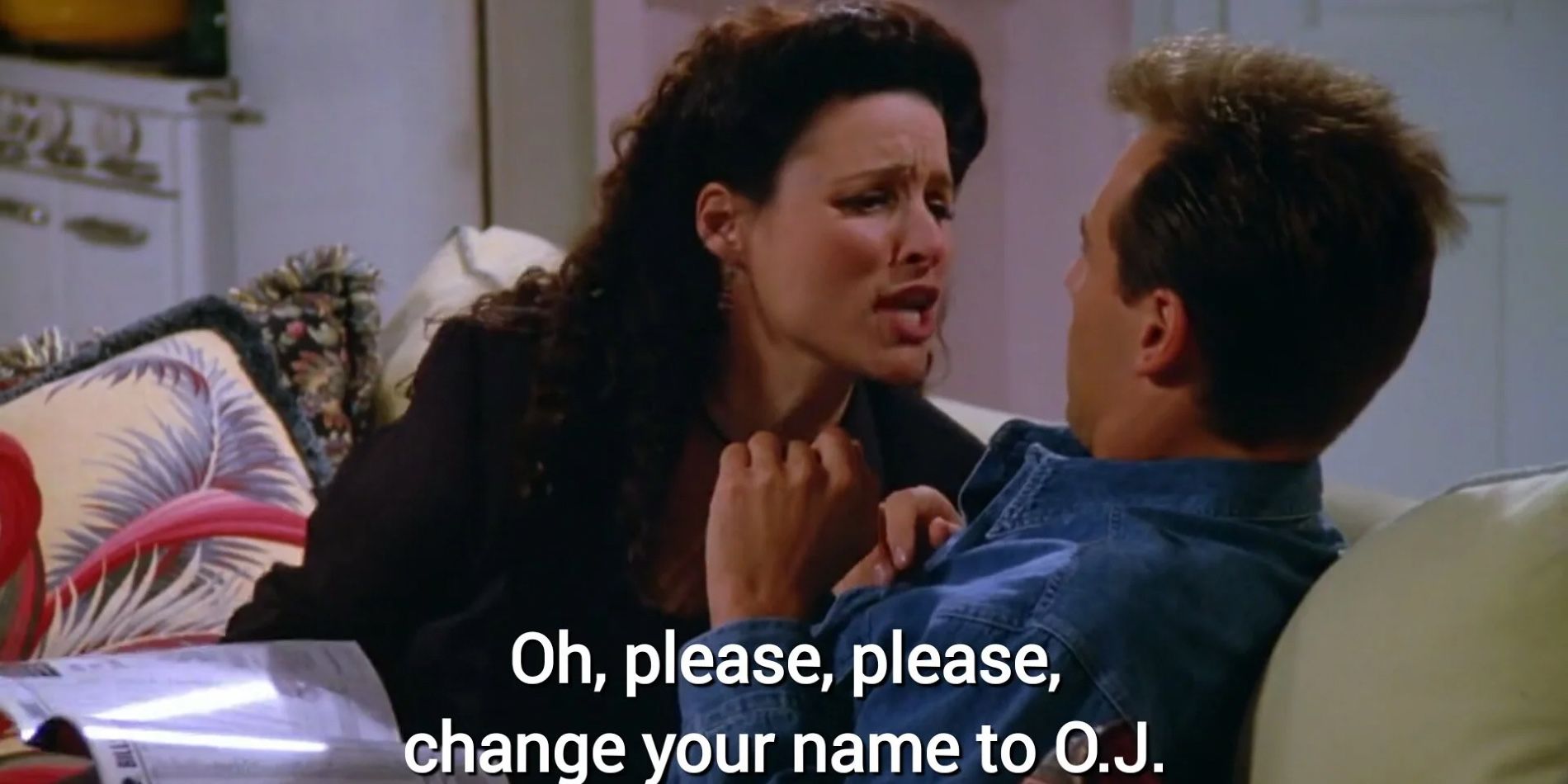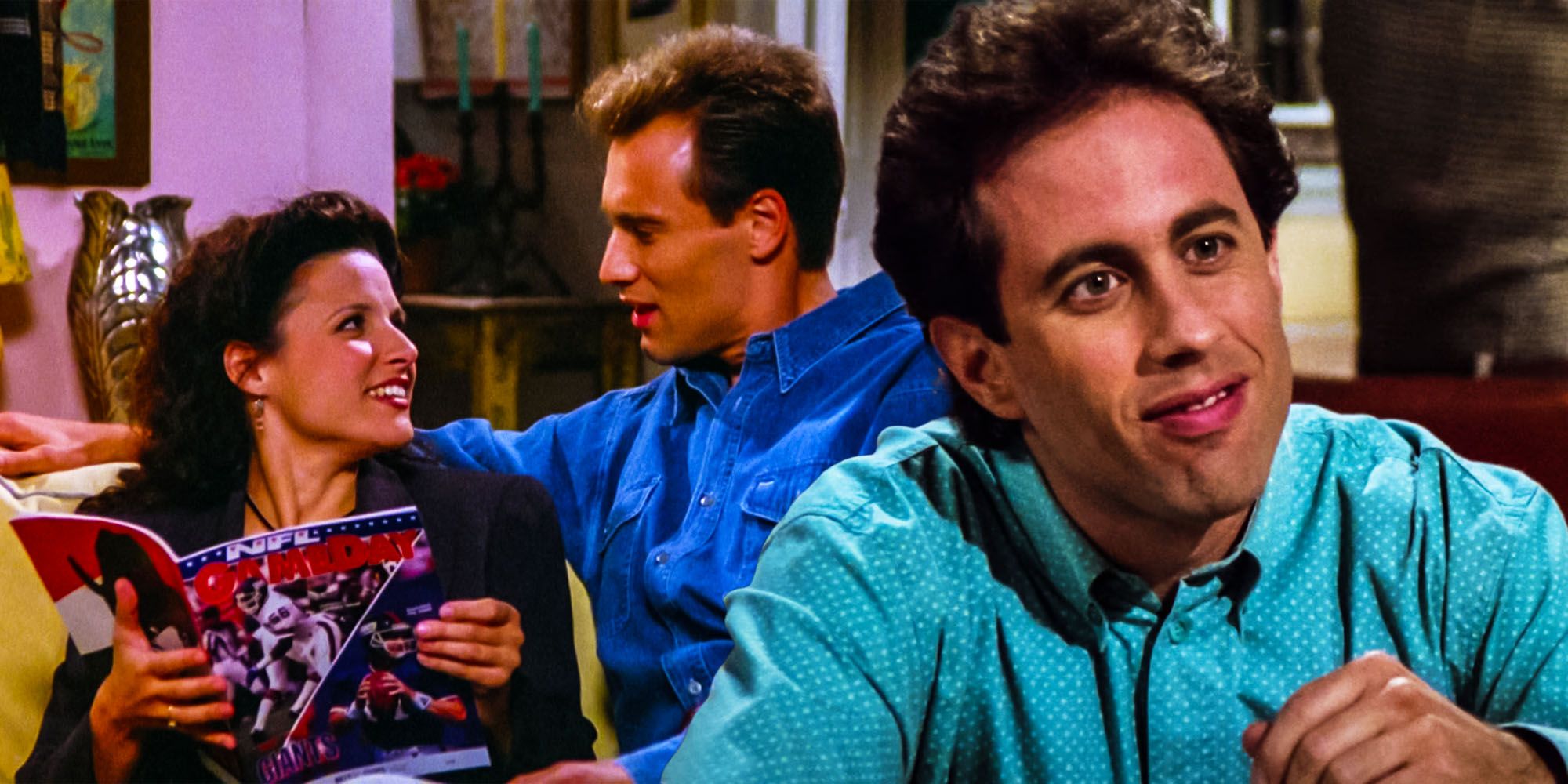Seinfeld's "Big Salad" & "The Caddy": OJ Simpson Jokes That Aged Poorly
Did a seemingly innocuous sitcom episode inadvertently predict a cultural earthquake, and how did the shadow of a notorious trial influence the comedic landscape? The seemingly simple storylines of Seinfeld, particularly in episodes like "The Masseuse" and "The Caddy," became unexpectedly intertwined with the real-life drama surrounding O.J. Simpson, showcasing the unpredictable ways in which art and reality can collide.
Seinfeld, a show celebrated for its "show about nothing," frequently mined the minutiae of everyday life for comedic gold. However, certain episodes, initially intended as lighthearted entertainment, took on new, darker layers of meaning in the wake of real-world events. This is particularly evident in the context of the O.J. Simpson trial, which cast a long shadow over American culture and, by extension, over specific episodes of the beloved sitcom.
One crucial episode in this context is "The Masseuse," originally aired on November 18, 1993, as the ninth episode of the fifth season, or the 73rd overall episode of Seinfeld. The episode, penned by Peter Mehlman and directed by Tom Cherones, introduced several key plot elements that would later acquire a startling resonance. The storyline features Jerry's relationship with a masseuse, Jodi (played by Jennifer Coolidge), and a subplot involving Elaine's boyfriend, Joel Rifkin. It is here that the seeds of the later, more complicated association were sown.
Elaine's boyfriend, sharing a name with the New York serial killer Joel Rifkin, presents her with an embarrassing problem. In an attempt to mitigate the situation, Elaine suggests he change his name to O.J. Simpson. This suggestion, offered as a lighthearted solution to a relatively minor social faux pas, is a moment of remarkable, and ultimately tragic, irony. At the time the episode aired, O.J. Simpson was a celebrated sports figure and actor, and the name change was proposed without any premonition of the events that were about to transpire. Yet, the comedic premise, in which Elaine seeks to avoid the negative associations of her boyfriend's name, inadvertently brushes against the precipice of a national scandal. It underscores a degree of insensitivity to the horrific crimes and an innocent, almost flippant, use of a name which would soon become synonymous with a very public and divisive trial.
The timing of "The Masseuse" is particularly poignant. The episode aired approximately seven months before O.J. Simpson was arrested for the murder of his wife, Nicole Brown Simpson, and Ronald Goldman. This temporal proximity transforms what might have been a throwaway joke into a stark reminder of the show's unwitting connection to a catastrophic event. The episode's treatment of the name O.J., thus, becomes a grim example of how pop culture and current affairs can, at times, find themselves uncomfortably aligned, changing the episode's character post-trial.
The show was certainly known for its cultural relevance, and at times its prescience. The creators and writers frequently based episodes on observations of the times. However, even the most astute cultural critics could not have predicted the fate of O.J. Simpson and the ensuing impact on his name, a key element in the plot of The Masseuse. This incident serves as a reminder of how much of life's most consequential dramas are beyond human foretelling.
The episode "The Big Salad," which aired on September 29, 1994, as the second episode of the sixth season, also offers a glimpse into the show's exploration of contemporary culture. The episode focuses on a series of minor misunderstandings and frustrations involving George, Elaine, and Jerry, revolving around the purchase and acknowledgment of a "big salad." While this episode does not directly address the Simpson trial or related themes, it serves as a demonstration of Seinfeld's overall commitment to capturing the essence of daily life.
The legacy of the Simpson trial would reach into many arenas of cultural production in the following years, and the show, not to be outdone, also incorporated elements of the story in its future episodes. "The Caddy," the 12th episode of the seventh season, which first aired on January 25, 1996, offered a more direct commentary on the trial. In this episode, George's attempt to take an unapproved vacation leads to his being presumed dead, while Kramer, Jerry, and Jackie Chiles (a character based on one of Simpson's lawyers) launch a lawsuit against Elaine's archenemy, Sue Ellen Mischke, for wearing a bra without a top in public.
The inclusion of Jackie Chiles and the courtroom setting serves as an explicit nod to the Simpson trial. The trial's media coverage was extensive, and the show's writers readily took advantage of the events. The episode's plot, therefore, is an example of how the real-life events informed the comedic content of the show, creating a parody of the trial's more sensational aspects.
The scene in "The Caddy" where Sue Ellen tries on the bra is another specific reference to the trial. The trial's focus on physical evidence, particularly the infamous glove, became a national obsession. This specific allusion allowed the writers to incorporate elements of the trial into the story.
The trial's cultural impact extended beyond the courtroom, permeating discussions on race, justice, and celebrity. Seinfeld, consistently demonstrated its ability to reflect the cultural zeitgeist, offered a darkly humorous commentary on the trial and its implications. The show's willingness to engage with sensitive issues, while maintaining its signature comedic style, solidified its status as a reflection of American society during the 1990s. Seinfelds ability to reflect the cultural zeitgeist of the 1990s, offering a darkly humorous commentary on the trial and its implications, solidified its status as a reflection of American society during that decade.
The shows enduring popularity stems from its characters, setting, and storylines, as well as its deft handling of topical subjects. However, the show's relationship with the Simpson case remains a fascinating instance of art intersecting with reality. The unexpected resonance of specific episodes, particularly "The Masseuse" and "The Caddy," reminds us of the unpredictable ways in which art and life can become intertwined, and the potential for humor to take on an entirely new meaning in the context of unforeseen events.


